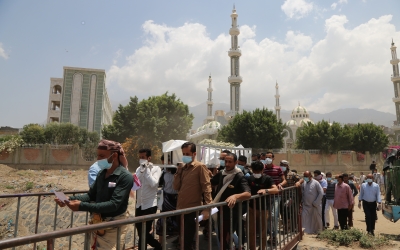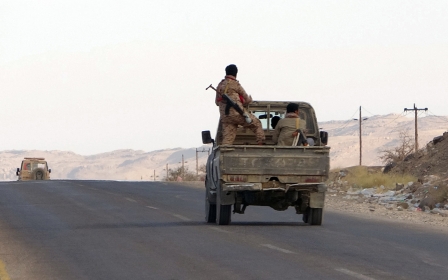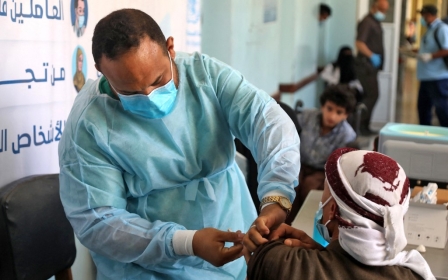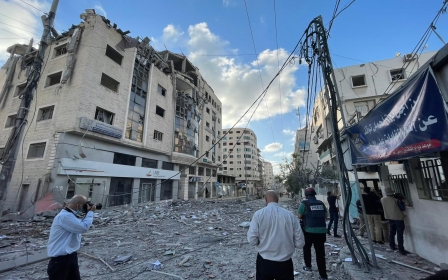Yemen's Houthi rebels blocking Covid-19 vaccines, says HRW
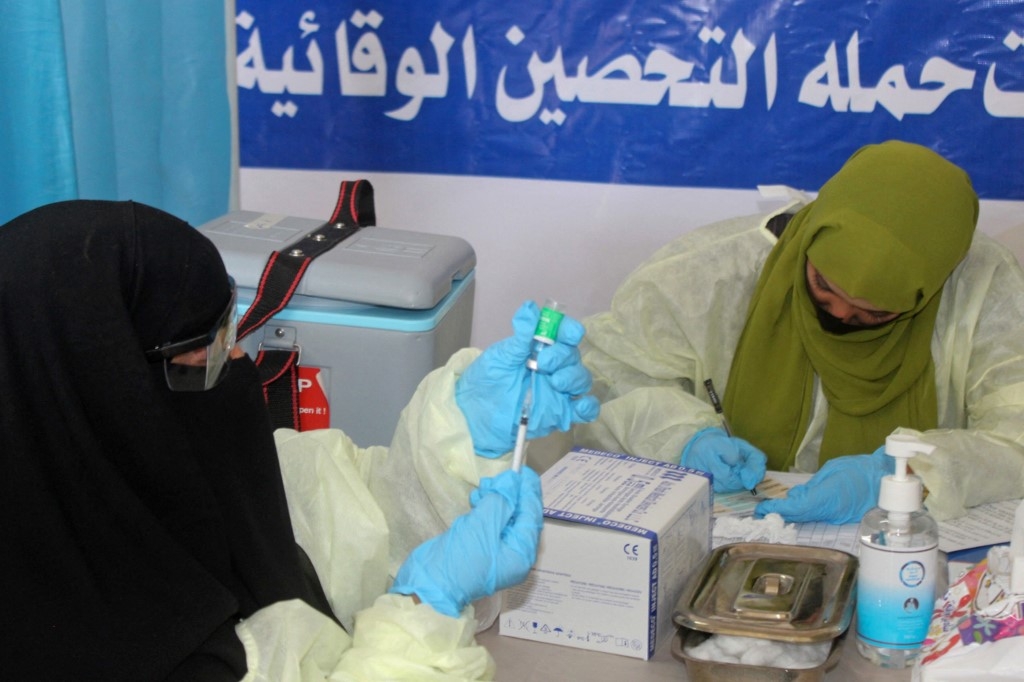
Yemen's Houthi rebels, who control most of the country's north including the capital Sanaa, have been blocking international efforts to supply Covid-19 vaccines, Human Rights Watch said on Tuesday.
The New York-based group also accused Houthi leaders of both suppressing data regarding the number of cases and deaths from the disease and spreading disinformation about the dangers and prevalence of the virus.
"The deliberate decision of the Houthi authorities to keep the real number of cases of Covid-19 under wraps and their opposition to vaccines are putting Yemeni lives at risk," Michael Page, HRW's deputy Middle East director, said in a statement.
"Pretending Covid-19 does not exist is not a mitigation strategy and will only lead to mass suffering.
"Given the weakened healthcare system in Yemen, Houthi authorities should at least ensure transparency so that civilians living in their areas can understand the scale of the pandemic and facilitate an international vaccination plan that meets the needs on the ground."
Yemen received 360,000 doses of the AstraZeneca vaccine on 31 March, the first of 1.9 million doses to be delivered this year through the Covax programme, which provides supplies of Covid-19 vaccines to poorer countries free of charge.
However, the rebels' failure to cooperate with the World Health Organisation and the Yemeni government has prevented any vaccines from reaching the north, HRW said, citing a medical source with "direct knowledge of the circumstances".
No vaccines have reached Houthi-controlled territory as a result, with vaccinations only occurring in the south where the separatist Southern Transitional Council controls large swathes of territory.
Spreading disinformation
After six years of war, Yemen is frequently described as the world's worst humanitarian crisis, with 20.7 million people - 66 percent of the population, including 11.3 million children - in need of assistance.
Saudi Arabia and its regional allies, chiefly the United Arab Emirates, entered the Yemeni government's war against the Houthi rebels in 2015 and began a wide-ranging aerial bombing campaign.
The war has killed more than 230,000 people, caused outbreaks of disease and brought millions to the brink of famine.
The conflict has also created a worsening public health crisis, with cuts in international aid threatening widespread famine this year, aid agencies have warned.
Meanwhile, Houthi officials have repeatedly dismissed Covid-19 as a "conspiracy", according to HRW, placing civilians at even greater health risks.
"America bears the primary responsibility for the Covid-19 epidemic," HRW quoted rebel leader Abdul Malik al-Houthi as saying in a televised speech last year.
"Some experts in biological warfare say that Americans have worked for years to benefit from the coronavirus and have worked to spread it in certain societies."
Medical workers told the rights group that even prior to the pandemic, some prominent Houthi officials said that they believed all vaccines are conspiracies.
Middle East Eye propose une couverture et une analyse indépendantes et incomparables du Moyen-Orient, de l’Afrique du Nord et d’autres régions du monde. Pour en savoir plus sur la reprise de ce contenu et les frais qui s’appliquent, veuillez remplir ce formulaire [en anglais]. Pour en savoir plus sur MEE, cliquez ici [en anglais].


